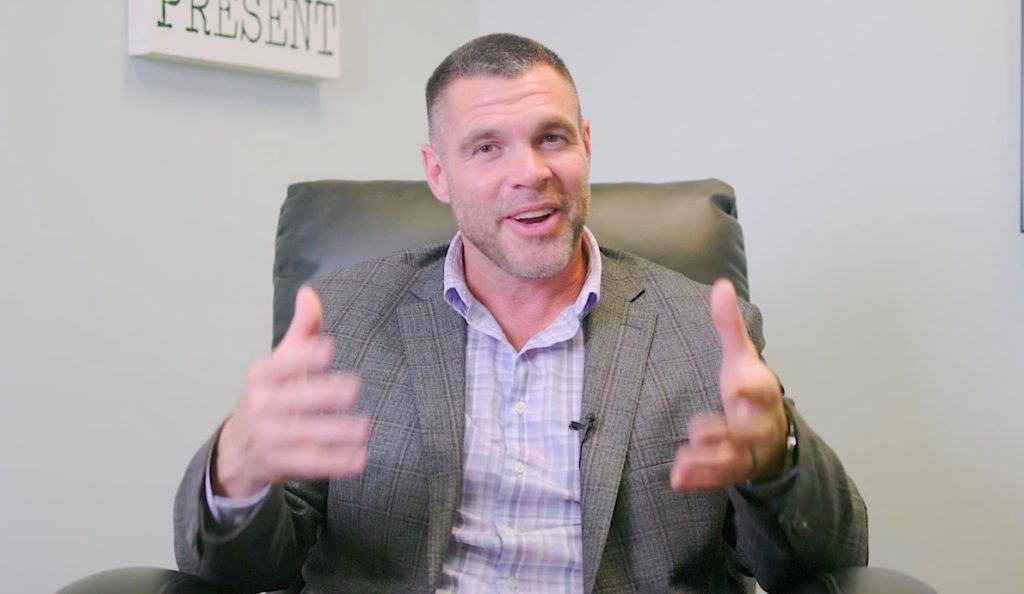In the next few moments, you will learn how hypnosis can help you tap the powers of your Subconscious mind. We will remove common myths and misconceptions about hypnosis and explore some of its many uses. First, let’s dispel some of the common myths about hypnosis, correct some inaccuracies and learn the truth.
Myths & Misconceptions
Many people get their ideas about hypnosis from television, books or motion pictures. While the plot lines of these entertainment vehicles make for good stories, they are often inaccurate.
Many misconceptions about hypnosis are because the term “sleep” is often used when discussing hypnosis. Hypnosis is not sleep, but because many times people experiencing hypnosis are very, very relaxed, it may outwardly appear like sleep. One difference is – in a hypnotic state – you can think clearly.
And did you know while in hypnosis, your morals and ethics remain intact? In other words, you won’t do anything against your will. You can reject or accept suggestions – it’s your decision. Scientific experiments have proven that, if someone were to give you suggestions that you disagreed with, you would simply reject them.
Some ill-informed people think it’s possible to become stuck in trance. In fact, if someone hypnotized you and then decided to take a trip to Cancun in the middle of a trance, you would simply continue to relax for a few moments and then choose to emerge when you felt like it. In hundreds of years of hypnosis this has always been the case.
Some people believe that in order to be hypnotized you must have a weak mind. Nothing could be further from the truth. Because hypnosis is not a contest of will power, a highly intelligent, strong-willed and imaginative person can make a great hypnotic subject.
Many people think that in order to experience hypnosis, they must become unconscious. This is probably the most common misconception about hypnosis. In hypnosis, you are aware and can hear clearly, in fact, hypnosis is a state of increased awareness. In a trance state, your hearing may be sharper, you may experience subtler sensations and your imagination and memory are enhanced.
Naturally Occurring Hypnosis
Hypnosis is natural state, in fact; we are in hypnosis many times each day. We pass through hypnosis on our way to sleep and when we wake up each morning.
Here are some other times in which people experience hypnosis naturally. If you have ever woken up, feeling very relaxed but not needing to be anywhere and thought something like “Maybe I’ll get up and brush my teeth,” but your body is too relaxed to move, you’ve been experiencing hypnosis. Becoming absorbed in a good book or movie is experiencing hypnosis. Driving on long trips on automatic pilot is known as highway hypnosis. Becoming bored or allowing your mind to drift away leads to hypnosis. Becoming extremely engaged in something and allowing your mind to focus means that you are experiencing hypnosis.
Hypnosis is a state in which you can think clearly and your imagination is active. It’s a state where you could move if you wanted to or if there were an emergency but you would rather just remain delightfully relaxed. It’s a state in which beneficial ideas can more quickly and easily gain access to the inner mind. And because we all experience trance each day, we can understand just how safe it is.
What is Hypnosis?
We all have a conscious mind, and what some people call either a subconscious or an unconscious mind. Hypnosis deals with your subconscious or unconscious mind which, for sake of clarity, I’ll call the subconscious or inner mind. Your conscious mind is responsible for logical, analytical, linear thinking.
Though our beliefs systems and behaviors reside in the subconscious or inner mind; the conscious mind is responsible for guarding them. So, when someone tells you something that you think is not true, your conscious mind may reject the idea or suggestion.
Your subconscious or inner mind is more symbolic and holistic in nature. Emotions are the domain of your subconscious or inner mind as are perceptions, habits, beliefs and automatic bodily functions such as breathing and digestion.
Often times we learn something consciously, then the subconscious or inner mind takes over that learned behavior. So behaviors that we once learned step-by-step, like tying our shoes, are now “second nature” or automatic, subconscious or unconscious behavior. These are the things we’ve learned to do so well we don’t have to think too much about them. Habits are another example of this automatic behavior.
And what about the ideas that our conscious mind accepts? Once an idea is accepted by the conscious mind it can pass through the subconscious or inner mind. Once accepted by the subconscious or inner mind, the mind behaves “as if” it is true. If the conscious mind is willing to play along, is not paying attention, is in shock or is not yet fully formed(as in the case of a child) new ideas can establish themselves in the subconscious or inner mind. This is why it is so important to be positive with children.
So, in order to get new, beneficial ideas to be accepted by the subconscious or inner mind, we must relax the conscious mind and communicate directly with the subconscious or inner mind. If the idea is accepted by the subconscious or inner mind, the whole mind is focused and tuned in to making that idea true. Since the subconscious or inner mind runs the body, our perceptions and emotions, as well as habits, it can align all those resources to make things happen. Deep in your mind, changes can take place that allow you to feel different emotions, have different habits, learn things quickly respond with a more thoroughly resourceful physiology.
In hypnosis, we temporarily relax the conscious mind and gain access to the powerful subconscious or inner mind. In this beneficial, relaxed state, we can more easily get positive ideas across to the most powerful parts of our mind.
So one definition of hypnosis is; temporarily relaxing the conscious mind allowing positive and beneficial ideas to become accepted by the subconscious or inner mind. When these ideas are presented with sufficient skill and connected to the individual’s motivation, they become powerful permanent allies for healing, personal development or habit control.
Some prominent hypnosis scholars take the position that all hypnosis is self-hypnosis. In other words, the person hypnotizing you is merely your guide, showing you how to achieve hypnosis. Another way of putting this is – you must agree to be hypnotized.
What is Hypnosis Like?
People describe the experience of hypnosis as highly pleasurable and often comment that they feel like they had a refreshing nap. You might feel a number of sensations while in trance. Most people’s muscles grow loose and relaxed. Many report pleasant feelings. Often breathing grows deeper and slower as a result of increased relaxation. Feelings of warmth or tingling are common. Often people report an increased ability to visualize much like daydreaming. Some people’s perception of time is altered – the trance state may seem much longer or shorter in duration than it actually is.
While some continue to listen to the words of the hypnotist, others report that the mind drifts away to some pleasant memory or imagined scene. Because the conscious mind may drift away, some report only a general sense of what was said in the trance – just like seeing a movie but not perfectly remembering every scene. Each individual’s experience of trance is unique.
The Uses of Hypnosis
In the hands of a qualified and skilled person hypnosis can be a valuable ally for healing, self-improvement, habit control and much, much, more…
Though many people are familiar with the success of hypnosis in smoking and weight loss, most are unaware of its powerful uses for anesthetic and to speeding healing.
Hypnosis has long been used to help people suffering from trauma and to overcome roadblocks originating from past experiences.
Hypnosis is a powerful tool for performance enhancement and goal setting.
The hypnotic state is a great stress buster.
Every situation can benefit from having the powerful subconscious or inner mind on your side.
I hope you better understanding how hypnosis can help to improve your life. You have learned that in trance you can hear clearly and your morals are intact. You have learned that no one has ever gotten stuck in trance. You learned that having a strong mind can actually help you enter hypnosis easily. You learned just how safe and natural hypnosis is. Perhaps now you are feeling more comfortable about experiencing hypnosis.
Enjoy your trance experience.


